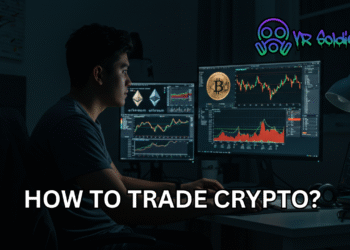There are quite a few different terms virtual reality enthusiasts have to be aware of at all times. While most of the commonly used terminology needs little to no explanation, there are some concepts that are not necessarily easy to grasp. Metaverse is one of those terms that will often be thrown around when talking about virtual reality, but what does it even mean?
The VR Metaverse is Quite Incredible
Do not be mistaken in thinking the Metaverse is not real, even though it only makes an appearance in sci-fi TV shows and video games. In fact, the Metaverse is a very real concept pertaining to a collective virtual shared space. In the Metaverse, virtually enhanced physical reality and physically persistent virtual space come together.
While that is still quite difficult to comprehend, the Metaverse is far less complex than one would think. It can best be described as a combination of the virtual world augmented reality, and the Internet. In a way, the Metaverse will serve as a future internet or persistent and shared 3D virtual spaces which only exist in a virtual universe. Visitors of the Metaverse will have to “travel” there, by putting on a virtual reality headset, for example.
While the Metaverse may sound like a place all of the cool kids will use to hang out, there is still a lot of work to be done before that goal can be achieved. Up until this point, there is still no communication protocol that works across different virtual environment systems. An industry-wide technical standard for communication and entering the Metaverse has yet to be created. It can take years if not decades before this virtual environment becomes freely accessible in a convenient manner.
Although the Metaverse does not necessarily relate to just virtual reality, this particular technology will be one of the consumer-grade gateways to entering these persistent virtual spaces. Virtual reality will allow anyone in the world to create their own virtual environment and have people “visit” it at any given time. Moreover, all of these virtual environments and worlds will need to be decentralized, otherwise, one company could control everything. That can never be the primary objective.
Creating the virtual reality Metaverse is a painstaking process. First of all, engineers need to find a way to allow VR users to transfer goods from one VR world to the next. Second, payment solutions will need to be developed, as people will want to fully immerse themselves in these persistent virtual worlds. Last but not least, some sort of inventory system will need to be created to make the experience look and feel rewarding and challenging at the same time.
In the end, until an open-source-world server package for virtual reality worlds will come to fruition, the Metaverse remains but a utopian dream. Companies are too focused on building their own VR ecosystem, instead of contributing to a global unified experience. The Metaverse is definitely something to look forward to as a virtual reality enthusiast, but it remains to be seen if such a technology will be created in our lifetimes.
If you liked this article make sure to follow us on twitter @thevrbase and subscribe to our newsletter to stay up to date with the latest VR trends and news.












